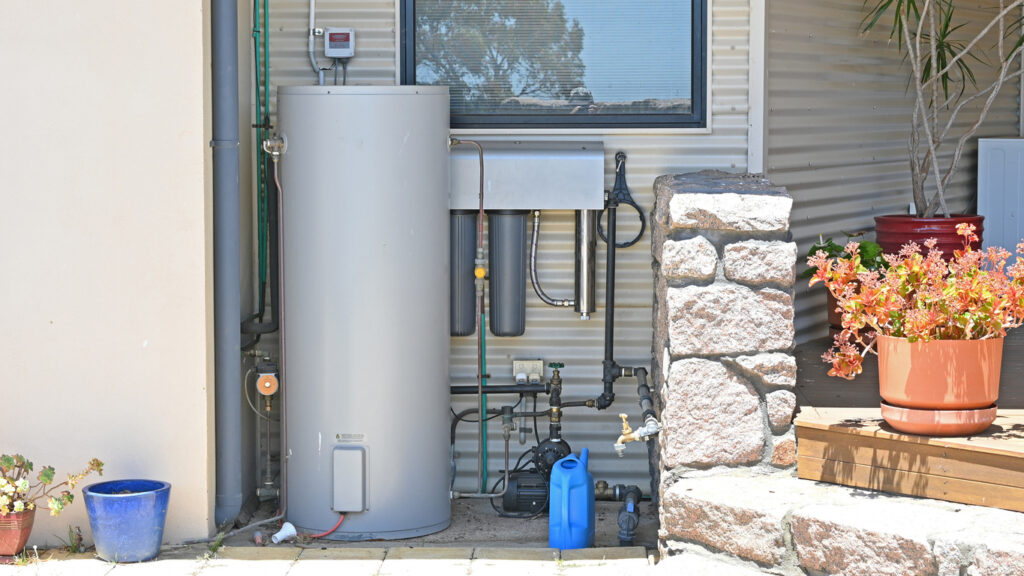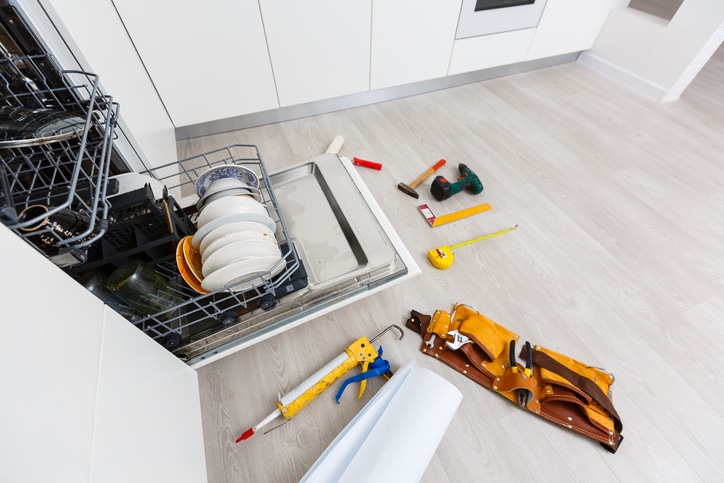What Is a Slab Leak?
A slab leak occurs when a water line running underneath the concrete foundation of your home develops a leak. These pipes are buried beneath your slab, so any damage or wear can result in slow, hidden leaks that go unnoticed—until there’s serious water damage, foundation issues, or a skyrocketing water bill.
Slab leaks are a common plumbing issue in Texas, especially in older homes or areas with shifting soil conditions. Left untreated, a slab leak can lead to major structural damage and costly repairs.

Common Causes of Slab Leaks
There are several reasons slab leaks occur:
Corroded Pipes: Over time, water chemistry can break down copper or galvanized pipes.
Poor Installation: Incorrect pipe placement, sharp bends, or subpar materials can cause leaks over time.
Shifting Soil or Foundation Movement: North Texas homes are especially prone to foundation movement due to clay soil, which expands and contracts with moisture changes.
Abrasion: Pipes that rub against concrete or rebar can wear down and eventually leak.
Water Pressure Issues: High water pressure can strain plumbing systems, increasing the risk of leaks beneath the slab.
Signs You Might Have a Slab Leak
The sooner you can catch a slab leak, the better. Watch for these common warning signs:
Unexplained High Water Bills: A sudden spike in your water bill could mean water is leaking where you can’t see it.
Hot Spots on the Floor: If a hot water line under the slab leaks, you’ll often feel warm areas on your flooring.
Wet or Damp Flooring: You may notice soaked carpet, warped flooring, or unexplained moisture.
Low Water Pressure: A leak in the slab can reduce water pressure throughout your home.
Mildew or Musty Smells: Moisture under your floors can create mold or mildew, especially in basements or crawlspaces.
Cracks in Walls or Flooring: Structural shifts caused by water damage can lead to visible cracks in your home’s interior or exterior.
Why Slab Leaks Should Be Repaired ASAP
Slab leaks aren’t just a nuisance—they’re a serious threat to your home. Ignoring them can lead to:
Foundation Damage: Persistent moisture can weaken your home’s foundation.
Mold Growth: Leaking water creates a breeding ground for mold and mildew, which can impact your health.
Skyrocketing Repair Costs: The longer you wait, the more extensive (and expensive) the repair becomes.
Water Waste: A hidden slab leak can waste thousands of gallons of water each month.
How Are Slab Leaks Detected?
Modern technology allows licensed plumbers to detect slab leaks without tearing up your entire floor. At Total Plumbing, we use:
Electronic Leak Detection
Infrared Thermal Imaging
Pressure Testing
These tools help us pinpoint the leak’s location with precision, so we can recommend the most effective repair with minimal disruption.
Slab Leak Repair Options
Once a slab leak is located, there are several repair methods, depending on the severity and location:
Direct Access Repair: Jackhammering through the slab to access and repair the leak.
Rerouting: Running new pipe above the slab to bypass the damaged section.
Pipe Lining: In some cases, epoxy lining can seal the leak without full excavation.
Each home is different, so we always provide a detailed inspection and honest recommendations.
How Much Does Slab Leak Repair Cost?
The cost to repair a slab leak can vary widely depending on factors like the location of the leak, type of repair needed, and accessibility. Here’s a general breakdown to help homeowners understand what to expect:
Typical Cost Range
Slab Leak Detection Only: $250 – $600
(Using electronic equipment to locate the leak precisely)Direct Access Repair (Breaking into the slab): $500 – $4,000+
(Costs can rise if flooring or foundation restoration is required)Rerouting Pipes: $1,500 – $6,000+
(Used when direct access is too invasive or multiple pipes are involved)Epoxy Pipe Lining: $2,000 – $5,000+
(Trenchless option, not always viable depending on pipe condition)
Other Variables That Affect Cost:
Hot vs. Cold Water Line: Hot water leaks are more common and often easier to detect.
Extent of Damage: Water damage to flooring, drywall, or cabinets will increase total cost.
Foundation Type: Homes with post-tension slabs may require special handling.
Emergency Service: After-hours or weekend slab leak repairs can incur additional charges.
At Total Plumbing, we offer honest pricing, upfront estimates, and financing options to help make slab leak repairs more affordable. We’ll walk you through your options before any work begins—no surprises.



